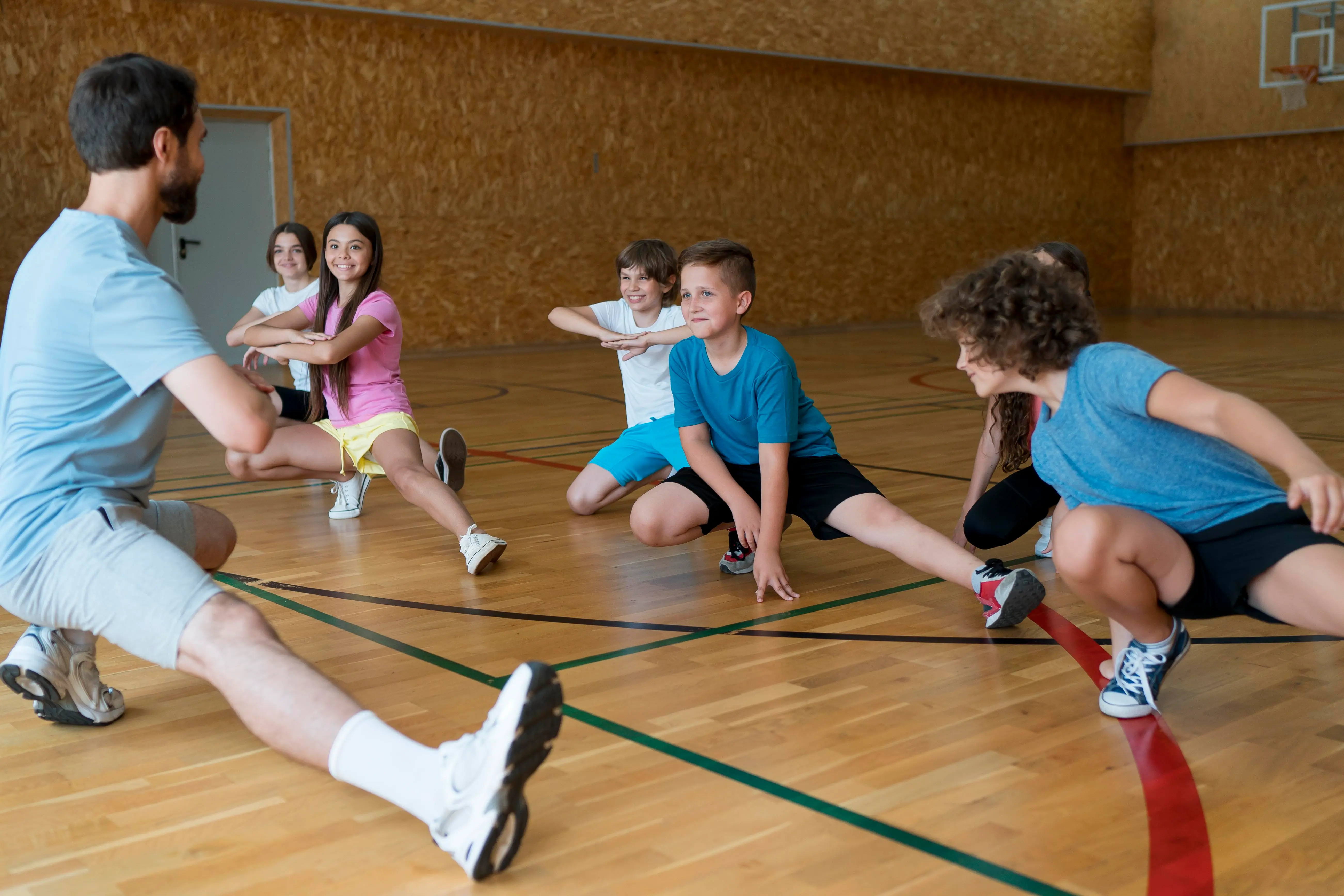BPE
BPE (Bachelor of Physical Education)
The three-year undergraduate BPE degree emphasizes fitness science, sports training, physical education, and general physical wellness. Students who complete it are prepared for careers in sports management, coaching, training, and education.
Academic Title: Bachelor of Physical Education
Three years (six semesters) in length
Qualifications: physical fitness test (in most colleges), 10+2 (any stream)
The admissions process UGC and NCTE have approved merit-based or entrance + physical efficiency tests.
Type of Course: Training-Oriented Professional
Course Structure (Semester-wise)
| Semester | Major Subjects |
| I | Foundations of Physical Education, History of Physical Education, Anatomy & Physiology |
| II | Health Education, Yoga Education, Fitness & Wellness |
| III | Sports Psychology, Kinesiology, Teaching Methods in PE |
| IV | First Aid, Recreation & Leisure Studies, Educational Psychology |
| V | Sports Training, Tests and Measurements in PE, Rules of Games and Sports |
| VI | Project Work, Internship, Research Methods, Organization of Tournaments |
Marks Structure (Indicative)
| Component | Weightage (%) |
| Written Exams (Theory) | 50–60% |
| Practical/Field Tests | 30–40% |
| Internal Assessments | 10–20% |
| Project Work / Internship | 10–15% |
Key Skills Developed
Physical Health and Conditioning
Techniques for Coaching and Teaching
Team Management and Leadership
Proficiency in Sports Science and Psychology
Organization of Events and Tournaments, Discipline, and Communication
Management of Sports Injuries and First Aid
Education on Yoga and Wellness
Higher Studies After BPE
| Course | Focus Area |
| B.P.Ed. (Bachelor of Physical Education) | Advanced PE training for teaching |
| M.P.Ed. (Master of Physical Education) | Research and specialization |
| Diploma in Coaching (NIS) | Professional coaching certification |
| MBA (Sports Management) | Sports event/business careers |
| M.Sc. in Sports Science | Science & research-oriented career |
| PG Diploma in Yoga or Fitness Training | Specialization in alternative areas |
Career Opportunities After BPT
BPT graduates can work in hospitals, sports centers, rehabilitation clinics, orthopedic departments, and wellness centers.
| Sector | Job Role | Average Salary (INR/Year) |
|---|---|---|
| Hospitals & Clinics | Physiotherapist, Rehab Specialist | ₹3.5 – ₹6.5 LPA |
| Sports Teams/Centers | Sports Physiotherapist | ₹4 – ₹7.5 LPA |
| Orthopedic Departments | Ortho Physiotherapist | ₹4 – ₹7 LPA |
| Rehabilitation Centers | Rehabilitation Therapist | ₹3.5 – ₹6 LPA |
| NGOs / Disability Support | Mobility Consultant | ₹3 – ₹5.5 LPA |
| Home Healthcare | Home Physiotherapist (Freelancer) | ₹3 – ₹8+ LPA |
| Academia | Lecturer (with MPT), Clinical Tutor | ₹4 – ₹6.5 LPA |
| Government Sector | Physiotherapist in Govt Hospitals | ₹4.5 – ₹7.5 LPA |
| Self-practice | Private Clinic Owner | Varies (₹6 – ₹15+ LPA) |
Scope After BPT
✅ High demand in sports medicine, orthopedic recovery, neuro rehab, and geriatrics
✅ Opportunity to open own clinic or rehab center
✅ Eligible for MPT (Master of Physiotherapy) and super-specializations
✅ Can work with athletes, hospitals, senior citizens, injury recovery patients
✅ Growing need in post-operative rehab, chronic pain therapy, and home care
✅ Opportunities in research, teaching, and fitness-based industries
Conclusion
Students that are enthusiastic about sports, fitness, and active lifestyles would benefit greatly from BPE. It lays a solid basis for jobs in coaching, physical education instruction, sports training, and fitness consulting.
FAQs About BPE
Q1: Is BPE the same as B.P.Ed.?
➡️ No. BPE is usually a 3-year undergraduate program, while B.P.Ed. is a 2-year postgrad course (after any bachelor's degree).
Q2: Can I become a PE teacher after BPE?
✅ Yes. After BPE, you can apply for teaching jobs or pursue B.P.Ed. or M.P.Ed. for higher roles.
Q3: Does BPE include practical sports training?
🏅 Absolutely. BPE combines physical training, sports practice, and practical evaluations.
Q4: Is BPE recognized by NCTE and UGC?
✔️ Yes, if the college is recognized by UGC and the program is approved by NCTE (National Council for Teacher Education).
Q5: What physical tests are required for BPE admission?
🏃 Most colleges test endurance, strength, agility, and basic physical fitness through running, jumping, flexibility, etc.
Course Detail
- Course Duration 3 Year
- Course Type Ug
- Exam Mode Semester
- Course Category Physical Education
Course Category
- Veterinary 01
- Naturopathy 02
- Fire Safety 00
- Physical Education 03
- Architecture 02
- Journalism 03
- Medical Science 04
- Paramedical 01
- Dental 01
- Vocational 02




